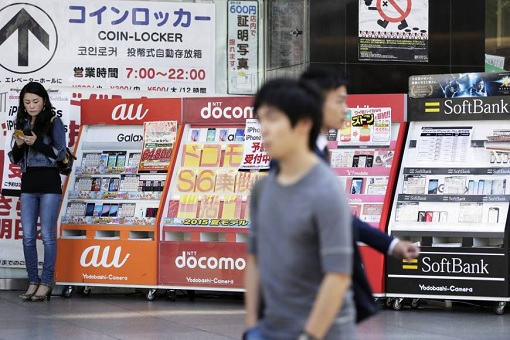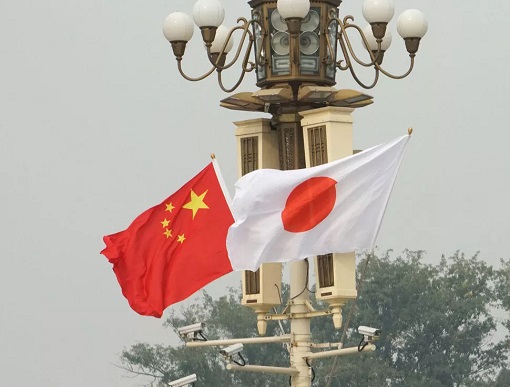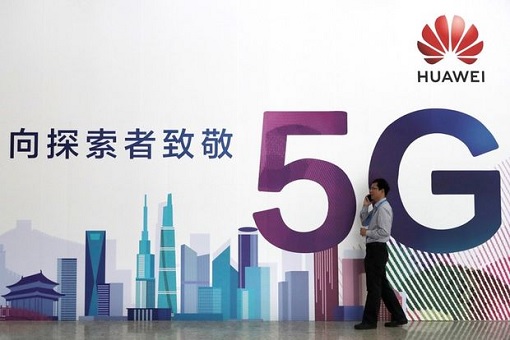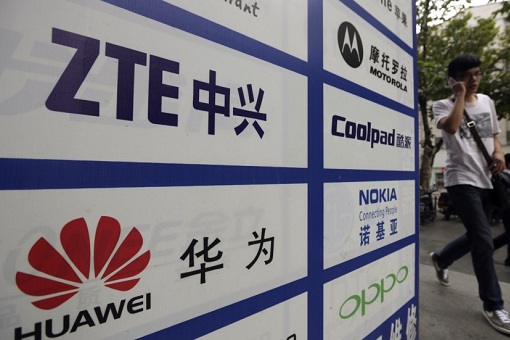When Prime Minister Shinzo Abe visits Beijing in October to mark the 40th anniversary of the Treaty of Peace and Friendship between the two countries, it appeared that Japan and China have put aside territorial disputes in the East China Sea as part of a new effort to improve ties. But all those efforts are about to be thrown out of the window.
After U.S. allies – Australia, New Zealand and Britain – have taken the U.S. warning seriously and banned the local telecommunications companies from using Chinese Huawei equipment for their 5G mobile networks, Japan becomes the latest ally to follow suit. Tokyo on Monday has officially banned the Chinese brands – Huawei and ZTE.
Japan’s three main mobile phone carriers – SoftBank Group, NTT Docomo and KDDI – have decided not to use Chinese equipment in their 5G networks, apparently due to rising security concerns. E-commerce company Rakuten, which will become Japan’s fourth wireless carrier next year, is also avoiding China, announcing that “there are no plans to use the Chinese telecommunication equipment.”

Effective April next year, Japanese central government ministries and its Self-Defence Forces will be banning any purchase from Chinese telecommunication companies. Prime Minister Shinzo Abe told reporters – “It’s extremely important to avoid buying equipment that includes malicious functions like stealing or destroying information or halting information systems.”
The new procurement guidelines – banning Huawei Technologies Co. and ZTE Corp. – cover personal computers, servers, routers and other such equipment. When queried by Beijing, Chief Cabinet Secretary Yoshihide Suga said Japan has told China it will take measures that are “in line with international rules.” That’s a polite way to say Tokyo has to comply with Washington’s guidelines.
The Chinese Embassy in Japan has expressed strong opposition to the move of banning Huawei and ZTE from doing business in the country. However, pressure against Huawei – the world’s largest telecoms equipment maker – skyrockets even more last week when the company’s chief financial officer Sabrina Meng Wanzhou was arrested in Canada at the request of US law enforcement.

In the meantime, the Japanese government will study what to do with the products of the two companies that it has already procured. According to sources, mobile phone carrier SoftBank Corp. currently uses Huawei products, in part of its 4G mobile communication system, but will replace them gradually with U.S. and European products.
NTT Docomo Inc., on the other hand, has not used products of the two Chinese companies for its current communication system, while KDDI Corp. has not used them in its key facilities. For the 5G communications system, however, SoftBank and Docomo have been carrying out trials with Huawei. KDDI has no plans to use the products now and in the future.
Consumer products such as smartphones, tablets and other devices for personal use made by Huawei and ZTE technology will continue to be offered by the three major Japanese mobile phone carriers as they do not affect the core of communications systems. The Japanese government also does not plan to restrict purchases of Huawei and ZTE by private-sector companies, at least for now.

But with pressure from the U.S. mounting, the possibility of the Japanese government making a carpet-banning on the Chinese brands might happen. Private companies may decide against taking the risk of buying from companies that could ultimately be barred from the market. This is indeed a very bad news to both Huawei and ZTE.
Huawei’s market share of the country’s base station sales jumped to 13% in fiscal 2017 from 4% in 2016. In terms of carrier’s base station installations of value, Huawei accounted for about 60% for financial year 2017. All three major companies are expected to be able to commercialize 5G services before the 2020 Olympics in Tokyo because none of them are solely reliant on Huawei.
Huawei and ZTE are known as leading companies in the field of next-generation 5G mobile communications networks. Both corporations have played a crucial role in the “Made in China 2025” blueprint, under which Beijing has been trying to create global leaders in robotics, artificial intelligence and other advanced technologies at the state’s initiative.

The arrest of Huawei CFO, Sabrina Meng Wanzhou, has been condemned by Beijing as political motivated. Huawei has become one of the biggest telecommunications companies in the world and has established itself as a leading smartphone manufacturer under the leadership of founder Ren Zhengfei, father of Meng.
Huawei’s expansion into the rest of the world has sparked concerns among Western governments over the company’s close ties to the Chinese authorities. But the majority of criticism has surrounded Huawei’s growing influence of global communications in the coming years. If its influence is not blocked, the Chinese company will provide technology for 5G wireless internet across the world.
In reality, the United States, China’s biggest competitor both in terms of economy, as well as global intelligence gathering, is extremely afraid that China would have access to sensitive user information, such as location data, and that Chinese technologies could pose a possible threat to critical American infrastructure.

As far back as 2012, Huawei and ZTE Corp were the subjects of an investigation that looked into whether their equipment could pose a threat to US interests. Since then, the U.S. has been warning its allies against using Huawei technology for critical infrastructure, especially the members of the so-called Five Eyes, a group of five English speaking countries – U.S., Canada, New Zealand, Australia, Great Britain.
Although both Huawei and ZTE have repeatedly denied allegations that their equipment could be used for spying, it would be their words against superpower United States. With the Chinese giants being banned by the U.S. and its allies globally, Nokia and Ericsson are expected to benefit from the ongoing war between China and the U.S.
Other Articles That May Interest You …
- China Furious!! – CFO & Daughter Of Huawei Founder Arrested In Canada On Behalf Of The U.S.
- A 90-Day Trade War Ceasefire – Who Blinks First, President Trump Or President Xi?
- National Security Threat – China’s Huawei & ZTE “5G Technology” Banned In Australia
- Corruption In Australia? Huawei The Biggest Sponsor Of Australian Politicians
- Trump Has 2 Ways To Stop China From Becoming A Global Leader In Technology
- Vanuatu Military Base – Australia Panic As China Secretly Militarizing Its Backyard
- US-DOJ Investigates Huawei For Violating Iran Sanctions – It’s All About Business, Stupid!!
- China Reveals Strategy To Fight U.S. Trade War – Stop Buying American Debt
- China Invasion – Top 10 American Iconic Brands Now Owned By Chinese

|
|
December 12th, 2018 by financetwitter
|


|

|

|

|

|

|
Comments
Portugal and Papua New Guinea are the latest countries to join 5G to be laid out by Huawei. More than 20+ countries have signed on, so far. In contrast, Nokia, Ericsson, South Korea have pittance.
You can’t stop China from progressing and leading. The nasty actions by the west will failed. It’s a lost cause.




























What is so great for Nokia and Erricson to get market share by devious means?
The damn american gweilos demands that China should not give subsidies to help home grown industries, but the same gweilos are banning Huawei from their respective countries so as to give aid to their less competitive companies. WTF !!
Would Samsung feel proud to be the No 1 smartphone manufacturer, when they can have wide access to the big US market while its worthwhile competitor, Huawei is banned from it? What good is this kind of shallow victory?
Anyway, the Huawei ban is only confined to white, western countries, more specifically, anglo saxon countries. Read ‘White’ This says alot about the kind of DNA innate in them caucasians which still is abound since colonial days.
To date, China is still is the market leader in 5G layout. The emerging markets, and developing countries all embrace Chinese products and technical knowhow. Forget about the few racist hook noses, scattered in those few countries.
The japs are nothing more than door mats, to be stepped upon at will by the marauding americans whenever they see fit. A nation with no backbone, and no dignity.
Let the gweilos consume lesser quality 5G. It’s their loss.